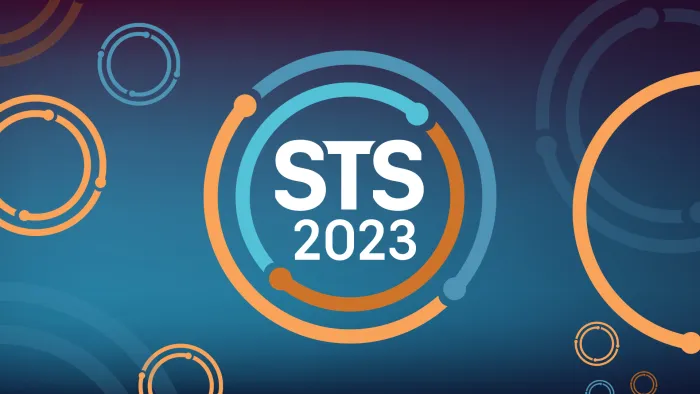John H. Calhoon, MD
STS News, Fall 2022 — It’s hard to believe my year as President is already complete. There were several memorable moments, including Coronary Congress in early summer in Ottawa, Ontario, Canada, followed by resident Boot Camp, AQO, and a great EACTS meeting in Milan, Italy. In early December, STS/EACTS and LACES put on an excellent cardiac meeting in Cartagena, Columbia, attended by more than 300 Latin American surgeons and other participants. This year’s meetings generated a lot of value for surgeons, residents, students, and industry partners enjoying the opportunity to be back together in person.
This past year, STS has been investigating ways to broaden its reach and impact internationally. To this end, we have proposed bylaws changes—to be reviewed at the STS Business Meeting at STS 2023—that will promote equal standing for members across the world.
STS 2023 is really shaping up. Early attendance figures look as good as ever, but what is most energizing is the program. Dr. Adil Husain, Ms. Michele Rush, and their team have put together a great meeting. It is designed to give attendees some time during the day to go for a walk or grab lunch with a spouse, friend, or colleague—to not just talk about work/life balance, but to actually live it a bit.
Themes for this year’s meeting include:
• Education, not just of our students and residents, but of ourselves.
• Social unrest: avoiding noise while navigating equitably and inclusively.
• Data and how we should be using it.
To this end, we have three great invited speakers lined up.
One is Dr. Francisco Cigarroa, one of my surgical colleagues in San Antonio. He previously dabbled in administration as president of our medical school, and then as chancellor of the entire UT system, before going back to just being a very talented and hardworking director of organ transplant programs. He will be delivering the Vivien Thomas Lecture to open our annual meeting. Please make every effort to be there Saturday morning as it promises to be awesome.
Our Thomas Ferguson Lecturer is a great orator, the Rev. Max Lucado, who will be speaking about “recalling our calling.” I’ve come to know Max well and I respect him tremendously. This talk will resonate with everyone about why we went into medicine and surgery and how to continue to enjoy the many great parts of our profession. It will not be evangelical, just something good for our souls.
Finally, we can all be really excited about Dr. Peter Smith agreeing to deliver the C. Walton Lillehei Lecture. He is going to be speaking about how CABG still is, in many cases, the best possible treatment for coronary disease. There is likely no one who has used data better than Dr. Smith to highlight our worth to patients, institutions, and to the health care industry. He almost singlehandedly helped us prevail with RVU based reimbursement over a decade ago. His talk on “the collision of a belief system with the evidence” will no doubt highlight just that.
Dr. Jo Chikwe and her team at The Annals continue to help us strengthen knowledge and skills as a key part of the STS experience. The STS Research Center and STS National Database have made progress this year in achieving quality and consistency of data to assess and benchmark performance. STS research and analytics services are increasingly used by physicians, researchers, payers, pharma, and industry for quality improvement initiatives, comparative effectiveness research, post-market surveillance, clinical trials, and basic and translational research. In addition, US News & World Report, starting in 2023, will track STS lobectomy outcomes through the GTSD—generating a lot of interest from hospitals! Learn more on page 7.
One thing which has been sad for so many of us was the sudden loss of Dr. Sean Grondin. As stated before, Sean was simply a wonderful man, surgeon, husband, father, son, teacher, and leader. His loss so soon was hard to fathom and remains simply hard to even process. His knack of spending time where it mattered and finding the right “fit” for whatever the situation is even more poignant now.
So, hope all enjoyed a wonderful holiday season and are looking forward to an even better 2023.
God Bless,
John
